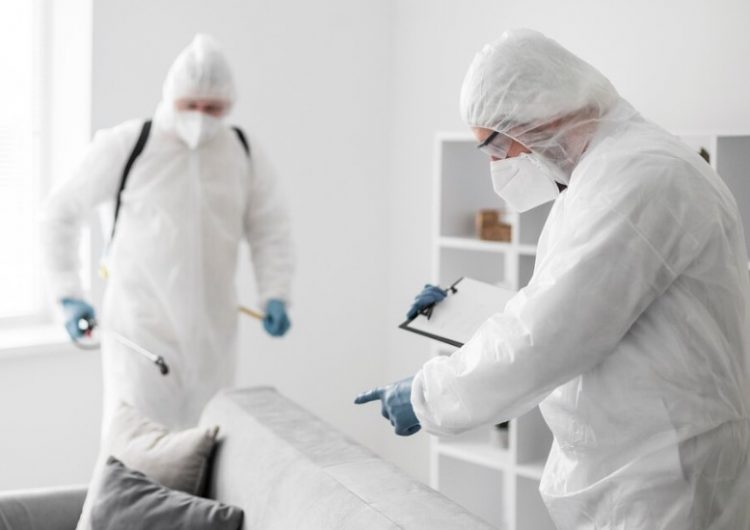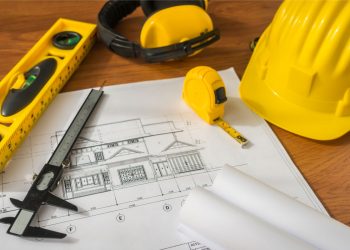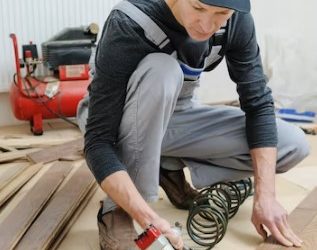Mold is a common household issue that can pose significant health risks if left unaddressed. From respiratory problems to allergic reactions, exposure to mold can have adverse effects on your well-being and quality of life.
What is Mold?
Mold is a type of fungus that thrives in damp, humid environments. It can grow on a variety of surfaces, including walls, ceilings, floors, and household items. Mold reproduces by releasing tiny spores into the air, which can easily spread and colonize new areas if conditions are favorable.
Health Risks of Mold Exposure
Mold exposure can trigger a range of health problems, especially in individuals with allergies, asthma, or weakened immune systems. Common health risks associated with mold exposure include:
- Respiratory Issues: Inhaling mold spores can irritate the respiratory tract, leading to symptoms such as coughing, wheezing, and shortness of breath. Prolonged exposure to mold may exacerbate existing respiratory conditions or contribute to the development of new ones.
- Allergic Reactions: Mold spores can act as allergens, triggering allergic reactions in sensitive individuals. Symptoms may include sneezing, runny or stuffy nose, itchy eyes, and skin rashes. Allergic reactions to mold can range from mild to severe, depending on the individual’s sensitivity and the extent of exposure.
- Asthma Exacerbation: For people with asthma, mold exposure can worsen symptoms and increase the frequency and severity of asthma attacks. Mold spores can inflame the airways, making it difficult to breathe and causing wheezing, chest tightness, and coughing.
- Fungal Infections: In rare cases, mold exposure can lead to fungal infections, particularly in individuals with compromised immune systems. These infections can affect the skin, lungs, or other organs and may require medical treatment to resolve.
Why Mold Inspections are Crucial
Given the potential health risks associated with mold exposure, regular inspections are essential for identifying and addressing mold growth in your home. Here’s why mold inspections are crucial:
- Early Detection: Mold growth often begins in hidden or inaccessible areas, such as behind walls, under flooring, or in crawl spaces. By conducting regular inspections, mold growth can be detected early before it spreads and becomes a more significant problem.
- Preventive Measures:Mold inspections in Houston usually allow homeowners to identify and address underlying issues that contribute to mold growth, such as leaks, poor ventilation, or high humidity levels. By taking proactive measures to eliminate these factors, homeowners can prevent mold from recurring in the future.
- Protecting Health: Mold inspections help protect the health and well-being of you and your family by identifying and addressing mold-related health risks. By removing mold from your home, you can reduce the likelihood of respiratory problems, allergic reactions, and other health issues associated with mold exposure.
- Preserving Property Value: Mold infestations can compromise the structural integrity of your home and diminish its value. By addressing mold issues promptly through inspections and remediation, homeowners can maintain their property’s value and avoid costly repairs down the line.
Mold inspectors typically follow a systematic approach to remediation, which may include the following steps:
- Identification of Mold Sources: Before remediation can begin, mold inspectors first identify the sources of mold growth in the home. This involves conducting a thorough assessment of the property to locate areas with visible mold growth, as well as areas with high humidity levels or water damage that may be conducive to mold growth.
- Development of Remediation Plan: Once the sources of mold growth have been identified, mold inspectors develop a remediation plan tailored to the specific needs of the property. This plan outlines the steps and strategies that will be implemented to remove mold and prevent its recurrence.
- Containment of Affected Areas: To prevent the spread of mold spores to unaffected areas of the home, mold inspectors may set up containment measures. This typically involves sealing off the affected areas with plastic sheeting and using negative air pressure systems to exhaust contaminated air outdoors.
- Removal of Mold Contamination: The next step in the remediation process is the removal of mold contamination from affected surfaces. Depending on the extent of the contamination, this may involve cleaning with specialized mold removal agents, sanding, or even removing and replacing mold-infested materials.
- Drying and Dehumidification: Once the mold has been removed, mold inspectors ensure that affected areas are thoroughly dried and dehumidified to prevent mold from returning. This may involve using dehumidifiers, fans, or other drying equipment to eliminate excess moisture from the air and surfaces.
- Repair of Water Damage: In cases where mold growth is the result of water damage, mold inspectors may recommend or oversee the repair of damaged plumbing, roofing, or other structural components. Repairing water damage is essential for preventing future mold growth and ensuring the long-term integrity of the property.
- Preventive Measures: In addition to addressing existing mold issues, mold inspectors may also recommend preventive measures to minimize the risk of future mold growth. This may include improving ventilation, sealing cracks and gaps, and maintaining proper indoor humidity levels.
- Post-Remediation Verification: Once remediation is complete, mold inspectors conduct a final inspection to verify that all mold contamination has been effectively removed. This may involve visual inspection, air sampling, or surface testing to ensure that the property is safe and free of mold.
Understanding the health risks associated with mold is essential for homeowners to prioritize regular inspections and take proactive measures to address mold growth in their homes. By conducting inspections, identifying mold-related issues, and implementing remediation strategies, homeowners can protect their health, preserve their property, and create a safe and healthy living environment for themselves and their families. Don’t wait until mold becomes a significant problem – schedule a professional help with inspectors like Neptune Mold Solutionstoday to ensure peace of mind and well-being for years to come.









